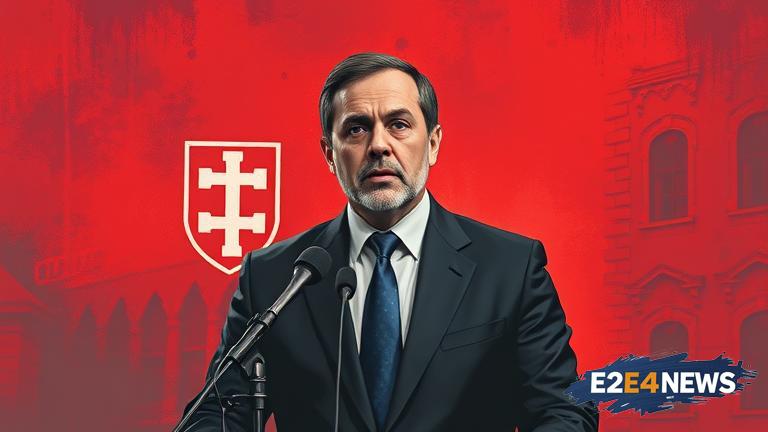The Culture Minister of Slovakia has recently expressed disapproval of a film that explores the sexual life of an elderly woman, titled ‘Granny’s Sexual Life’. This move has sparked a heated debate about censorship, artistic freedom, and the role of government in regulating creative content. The film, which has been screened at various festivals, has been praised for its thought-provoking and nuanced portrayal of a sensitive topic. However, the Culture Minister has deemed the film inappropriate and has questioned its artistic value. This criticism has been met with widespread criticism from the artistic community, with many arguing that the Minister’s comments are an overstep of their authority. The controversy has also raised questions about the government’s stance on censorship and whether it is attempting to impose its own moral values on the public. The film’s director has defended their work, stating that it is a legitimate exploration of human experience and that it does not promote or glorify any particular behavior. The debate has also drawn attention to the importance of artistic freedom and the need for governments to respect the creative autonomy of artists. Many have argued that the Culture Minister’s comments are a form of censorship and that they have the potential to stifle artistic expression. The controversy has sparked a wider discussion about the role of government in regulating creative content and whether it is ever justified to restrict access to certain types of art. The Slovak government has faced criticism in the past for its handling of artistic freedom, and this latest controversy has only added to concerns about its commitment to protecting creative expression. The film’s screening has been met with sold-out crowds and positive reviews, suggesting that there is a strong appetite for thought-provoking and challenging art. Despite the controversy, the film’s director has stated that they will continue to create art that pushes boundaries and challenges societal norms. The debate has also highlighted the importance of open and respectful dialogue about sensitive topics, and the need for governments to engage with artists and the public in a constructive and respectful manner. The Slovak Culture Minister’s criticism of the film has been seen as a missed opportunity to engage in a meaningful discussion about the importance of artistic freedom and the value of challenging art. Instead, the Minister’s comments have been perceived as an attempt to impose their own moral values on the public, which has only served to fuel the controversy. The incident has also raised questions about the government’s priorities and whether it is truly committed to supporting and promoting the arts. As the debate continues to unfold, it remains to be seen how the government will respond to the criticism and whether it will take steps to address concerns about censorship and artistic freedom.
